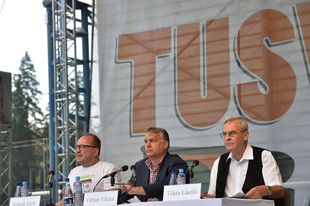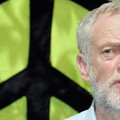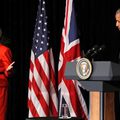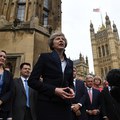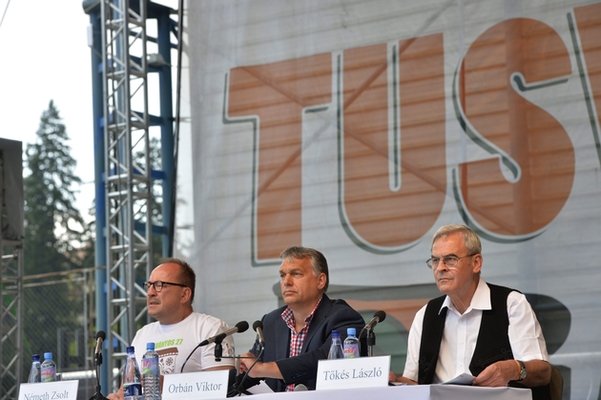
This time it is not Donald!
Viktor Orbán giving a talk on Europe at a summer youth camp in Tusnádfürdő (Băile Tușnad, Romania).
Photo: MTI
While the Brexit vote visibly shocked the British political elite and the public, as it did shock the European political elite and public as well, Viktor Orbán seems to have been galvanised by it. The Hungarian prime minister made some strong claims both at the V4 meeting in Warsaw a few days ago and in his speech on 23. July delivered at the summer university in Tusványfürdő,Transsylvania (Băile Tușnad, Romania) on Europe after the Brexit.
But let’s start with what happened earlier. It has a symbolic significance that on 21. July the V4 members met in Warsaw to evaluate the European political scene after the British leave vote. Poland has already gathered quite a prestige in Europe, as the largest of the new members, but his position will become even stronger after the British leave. The Poles seem to represent in Europe a Central-European kind of pragmatism, which is rooted in its political community’s Christian identity.
The V4 countries met this week to negotiate a common standpoint, which they can (re)present on 15. September, when the leaders of the EU countries meet in Pozsony (Bratislava, Slovakia) for an informal gathering. The two month’s preparation time, which connects the Warsaw and the Bratislawa meeting, show the significance attributed to the post-Brexit European situation by the Central-European leaders.
Viktor Orbán used harsh words to characterise this situation: “The European Union experiences dramatic moments, because with the British leave it has lost its global leading role.” As he saw it, the political responsibility of this loss rests with the European Commission, which has given the worst possible answers to problems posed by the migration crisis. In his view the new proposal of the EC for the migration crisis is unacceptable. “We do not want to give up our sovereignty, and the defence of our borders.” The new proposal wants to eliminate these two systematically.
Orbán’s words are given weight by the support of the Polish head of government. Beata Szydło shared the view that the institutional system of the EU does not fulfil the expectations of the European electorate, therefore in this new situation we need to start a debate on how, and in which direction this institutional system requires corrections. She affirmed that the EU is a great achievement, but it can only save its value if it is able to accommodate to the new challenges, if it is able „to pay more attention to the decisions of the sovereign national parliaments, and to deal less with the questions of its own institutional operation”.
That the V4 is on the move, and that Viktor Orbán is one of its spin doctors, while Hungary is one of its flagships, is proven by the Tusnádfürdő speech of the Hungarian head of government. This is a location where he is year after year taking care to cause scandal, in order to determine the agenda of public debate in and outside of his mother country. This year he almost exclusively dealt with the European situation – which is due to the fact that not having a suitable opposition at home he looks for opponents and a new topic on the European platform. “Fear, Brexit, terror, migration” – he described with this four words what he called the present European political atmosphere and the events which determined it. “Today a European leader talks about the EU, like one did 10-15 years ago, when it was still a global player. With the leave of the English a historical period terminates, and this role is finished. The EU today is only a regional player.”
He did not hide his opinion who should bear the blame for that. The first one to blame is Brussels, and there the political elite which has been in power in the EU institutions, and who misdiagnosed and mishandled the acute crisis. He had the opinion that we should charge the political thought of Old Europe, which is musclebound, anachronistic, relies too much on principles, is sentimental and cannot provide pragmatic solutions answering to challenges. He stated that in this respect Central Europe is much more viable, and therefore the region, which was scornfully called New Europe earlier, should indeed take over the initiative.
In his speech Orbán referred to the changes which he thought were necessary. He found three basic mistakes in recent policies of the EU: 1.) The significance of the European Parliament is exaggerated, 2.) the Commission has gone too far away to take a political role, instead of showing a pure neutrality, 3.) the Euopean Council has given up the consensual decision requirement in is decisions on issues, which are relevant for member states, in favour of the 2/3 majority decision process. In other words he found in all the three major European institutions causes to reform, to limit, or sometimes even to return to the original situation.
Another three point list by him is worth recalling: this one was introduced by Orbán with the name of Trump(!) – to ensure more attention. His (or Trump’s) three points were the following: to revise the secret services, to stop the democracy export and to stop migration.
From all these we can draw the conclusion that Orbán encourages the V4 to fight with him in the post-Brexit situation against Brussels, demanding a New Europe. He prefers to build the new European common strategy less on philosophical grounds and more on geopolitics, with the help of the leadership of an elite that does not try to govern in opposition with the electorate.
If Orbán finds supporters, he might contribute to a process, which leads to the real rearrangement of the European political arena.

